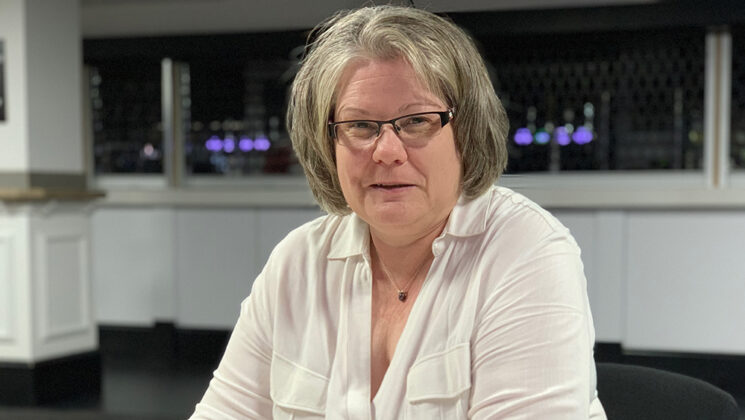For most people in the UK, probation is a subject that they only hear or read about when something goes wrong. As with social work, newspapers don’t print all the success stories – the crimes prevented, the lives turned around – so perception slants toward the negative.
But work in probation is a “very highly qualified, specialised job”, says probation service officer (PSO) and UNISON member Lee Middlemass, even if, as she adds, “we are paid a pittance”.
A PSO doesn’t have a degree and deals with the lower and medium-risk cases, while a probation officer, with a degree, deals with the highest-risk offenders; though Lee says that, when a PSO is very experienced, there will be overlap.
Lee lives and works in Northumberland, where she’s also the go-to person for UNISON.
Probation staff have faced a pay freeze for 10 years – in effect, a 35% pay cut. Lee talks of colleagues who have gone bankrupt, “because they have no other choice”, while others have gone hungry in order to afford the bus fare to work or have accessed food banks – “if they can get a voucher, since people struggle to believe that a probation worker would be so poorly paid”.
She predicts that this situation will bring about a massive crisis in the service within five years.
Part-privatisation
Although problems of pay and resources go back further, they were exacerbated in 2014, when the Conservative government enacted Chris Grayling’s splitting of the service into the National Probation Service (NPS), a public sector organisation that had the job of managing the most high-risk criminals, and 21 private companies responsible for the supervision of 150,000 low to medium-risk offenders.
Part of the disastrous part-privatisation was a theory that the split would see around 70% of cases go to private firms. “But it didn’t work like that. It kind of went 50-50”, Lee observes.
So the private companies ended up with more cases than they expected, she says. Although they weren’t high risk, many were very complicated, meaning the companies “couldn’t strip anything out to make money”.
Lee sketches out what that sort of complexity can look like. It could start with someone who has been violent towards their partner.
“They’ll also, often, turn out to have been done for drink driving, and then you find all the other stuff. You could find that they have mental health issues. You often find that there’s been sexual abuse in their past… because if you’re good at your job, you find things.
“They have very poor thinking skills, very poor emotional skills,” she continues. “Often they are very sporadic about compliance. They’ll turn up once and then breach. They’ll be resistant to change.
“You have to start as though you’ve got a young teenager who doesn’t know how the world works, you have to unpick all their thoughts and find out what’s causing them to behave the way they behave, and change those thought patterns and those behaviours.”
An officer will aim to help that person understand that their problematic thoughts and behaviour are very damaging to themselves as well as others. Lee may outline this process in a matter-of-fact way, but it’s not difficult to see how time and resource consuming such a process is.
Punching bags
She says of her job that it’s “a social worker without that title and without that respect”. And perhaps a psychologist, and a housing officer – and much more. “Unless you can get [service users] to open up, you can’t get them to make changes for the better.”
Lee notes that before the failed part-privatisation, inspectors had given the service “a gold award standard because of the work we did”, while surveys done with service users have revealed the difference that it can make to people’s lives.
The sell-off was reversed last year, with all probation services in England and Wales returned to a publicly controlled Probation Service. So are things changing now?
There is, Lee says, “a willingness within the new organisation to highlight to the public what probation does,” though a first Probation Day was, unfortunately, inward-looking and such efforts need to be far more outward-facing.
And pay is crucial. “If we don’t break the pay freeze this year, we’ll just have another one next year and the year after and the year after that,” she observes. “We’re undervalued… like a punching bag, just expected to absorb it all and keep going.
“I predict in five years, they’ll have a massive crisis in staffing. We’re asking for a fair wage – not a miracle.”
With so many people leaving and such a staffing crisis, why has she stayed?
“I’ve stuck it for so long because I want to make a difference,” she replies. That said, she’s currently doing an Open University degree in health and social welfare, which she’s paying for herself. “As soon as I get that, I’m out.”
Her hope is to move into the NHS or social work. Whatever she does, Lee Middlemass is still determined to change lives for the better.



21 thoughts on “Probation on a pittance”